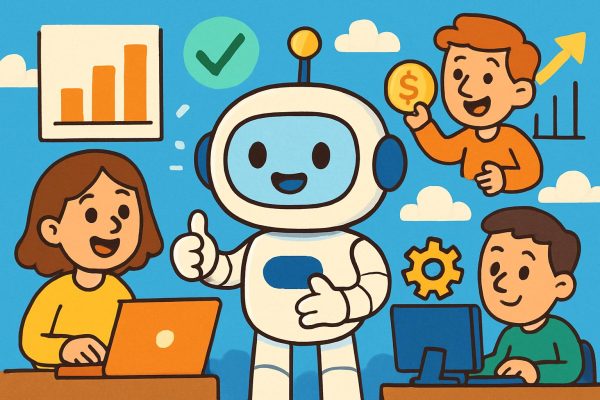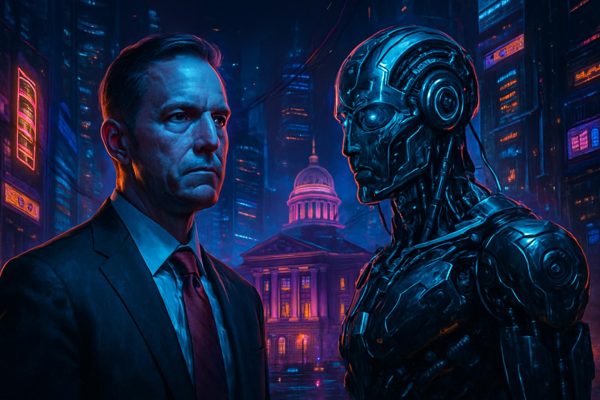The workplace is shifting, blending human creativity with technology in unexpected ways. As roles evolve, the ability to use intelligent systems thoughtfully is becoming a cornerstone of success. What defines those who can bridge these two worlds, and why are they becoming indispensable in today’s businesses?
What is an AI generalist—and why does your business need one?, published by Yahoo Finance, highlights the growing demand for professionals who combine technical knowledge of artificial intelligence with human-centered skills like critical thinking, communication, and adaptability. With artificial intelligence now playing an important role in daily business operations across various industries, organizations are creating new hybrid roles that blend technological fluency with traditional workplace competencies. The “AI generalist” captures this shift, offering a combination of expertise that helps them determine where automation can be applied, incorporate intelligent tools, and ensure thoughtful human oversight within complex workflows.
An AI generalist isn’t solely defined by technical expertise. Unlike narrow specialists, these professionals actively connect technology with strategic business goals. Whether it’s a marketer working with generative models for campaign ideas or a product manager analyzing data for insights, these generalists focus on using technology effectively to prioritize meaningful outcomes. The article also explains how freelancers are part of this change, using intelligent systems for higher-level problem-solving while delegating repetitive tasks.
Why It’s Relevant
This trend is altering work expectations. Rather than eliminating jobs outright, intelligent systems are influencing how roles change, requiring employees to integrate these tools into their day-to-day responsibilities effectively. For instance, developers on Upwork who use AI tools have seen higher earnings, highlighting how in-demand these hybrid skill sets are. It’s not just about technical roles; even project managers and creative professionals are working intelligent systems into their tasks. This is leading businesses to rethink hiring practices, emphasizing skills like curiosity and flexibility alongside knowledge of emerging technologies.
Benefits
Workers with knowledge in weaving intelligent systems into workflows are better prepared to adapt quickly and contribute meaningfully as industries change. Employers gain individuals capable of combining strategic planning with effective decision-making — a critical asset for navigating competitive markets. These generalists improve efficiency by supporting smooth collaboration between human and automated processes while delivering practical business outcomes. Their distinctive flexibility often encourages experimentation, leading to a more innovative and agile workplace culture.
Concerns
Building a workforce skilled in using intelligent tools comes with challenges. Organizations may initially face difficulties in training or reskilling their workforce to meet these new demands. Additionally, relying too heavily on automation without grasping its limitations could undervalue nuanced human judgment and creativity, particularly in complex decision-making scenarios. Businesses will need to proceed thoughtfully to ensure responsible use of these systems while promoting fair access to tools across roles and departments.
Possible Business Use Cases
- Create a consultancy to guide companies in reskilling internal teams as they adopt intelligent tools and processes into workflows.
- Develop an online platform that offers micro-courses in prompting techniques, tool evaluation, or cross-disciplinary applications suited for generalist roles.
- Design a software solution for freelancers that tracks the measurable impact of their human-tech collaborations, offering transparency for their clients.
As work continues to shift, it’s clear that the professionals who excel will be those who combine advanced tools with an ability to navigate large, interconnected systems effectively. This evolution isn’t just technical; it signifies a call to focus on meaningful human contributions alongside progress. As businesses and individuals adapt to this new hybrid mindset, balancing functionality with thoughtful application will remain the challenge and opportunity that defines the future of work.
—
You can read the original article here.
Image Credit: GPT Image 1 / Custom Prompt.
Make your own custom style AI image with lots of cool settings!
—
I consult with clients on generative AI-infused branding, web design, and digital marketing to help them generate leads, boost sales, increase efficiency & spark creativity.
Feel free to get in touch or book a call.




